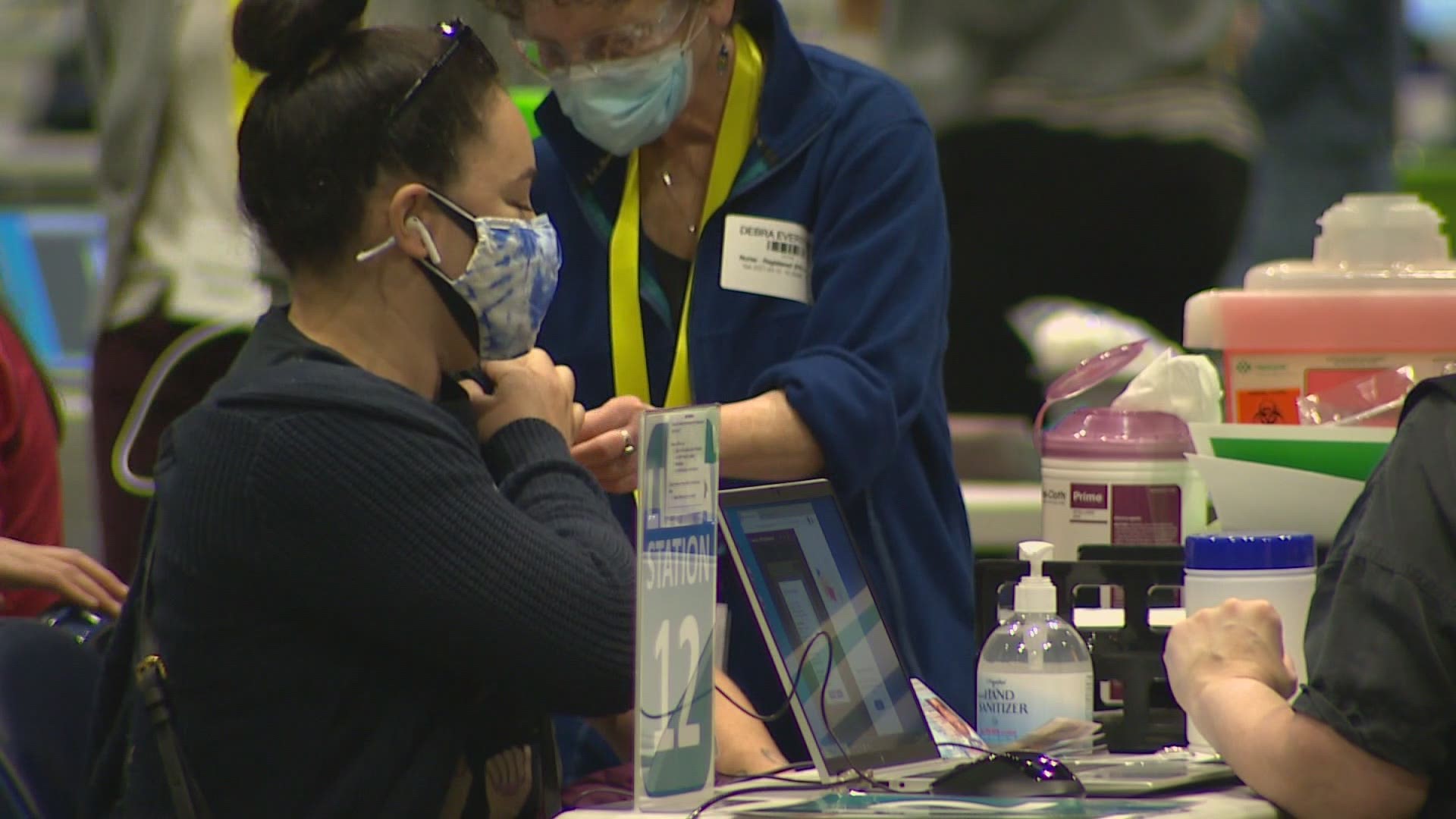SEATTLE — It’s the next step in the fight against the COVID-19 pandemic. Dr. Tia Babu from the University of Washington is heading up a local study looking at the long-term effectiveness of the vaccine.
“The primary endpoint, we will be looking at safety and tolerability of the vaccine, but we will also be looking at immune response,” said Babu.
“We don't know how long people have immunity after vaccination,” Babu continued. “We don't know, over time, will that immunity wane?" We do know that some of the vaccines are less effective against different variants.”
UW Medicine is among four health groups participating in the study, which is expected to last just over a year. They're looking for people who have not yet been vaccinated to participate in the early phase of the study.
“We're looking for people who don't have a lot of medical diagnoses, who don't have any risk for severe COVID, and for people who don't have a severe allergy profile as well,” explained Babu.
The study is small, so only a limited number of spots are available. To inquire, you can contact the UW Virology Research Clinic via email at gritstone@uw.edu or by phone at 206-520-4340.
Babu said the study is important to address future vaccine effectiveness against the mutating variants of the virus.
“We do want to see if we can elicit a broader immune response,” she said.
The study will be in two phases. During the first phase, participants will be given two doses of the COVID-19 vaccine.
“In the second stage of our study, we will be enrolling participants and we will be administering two other vaccines," said Babu. "These vaccines will actually have proteins for coronavirus that include the spike protein but will also have additional COVID proteins. So, we are hoping in the stage two portion of our city that we will be able to elicit a broader immune response, which may cover some of the variants which people might be familiar with mutations in the spike protein in coronavirus.”

